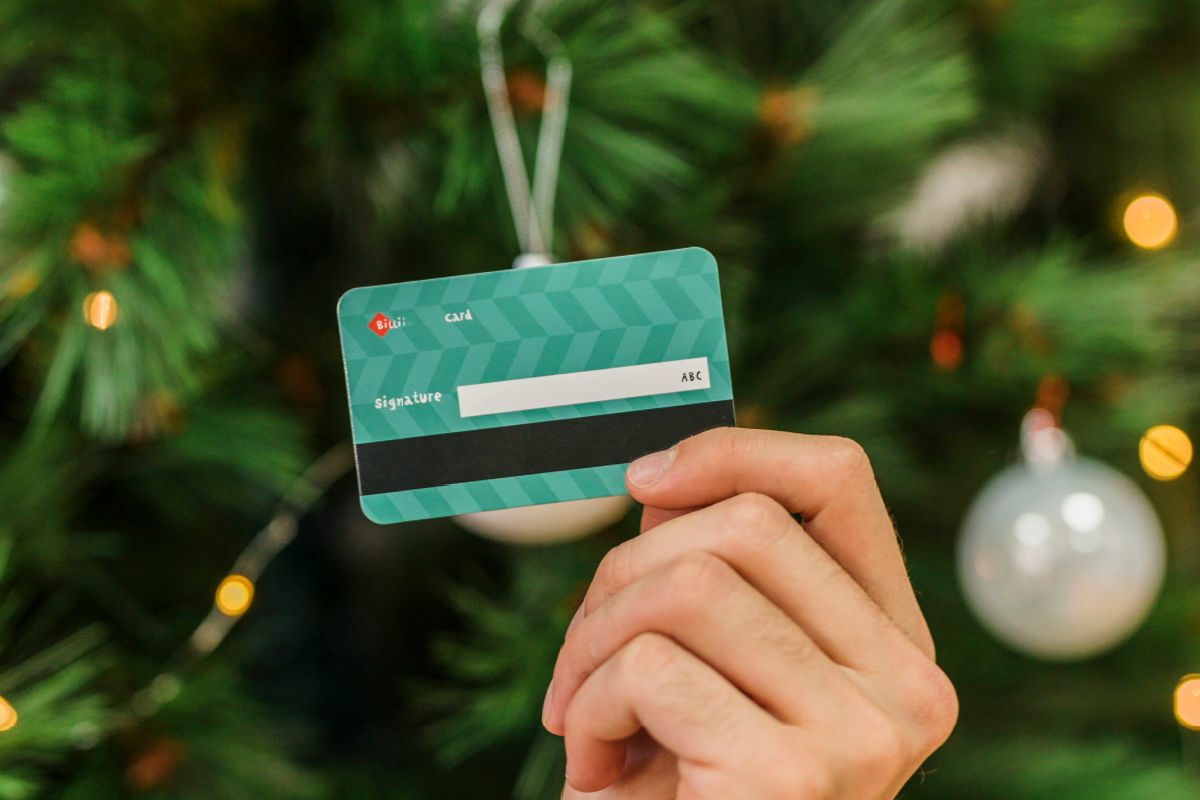Credit Cards Trends This Holiday Season
The holiday season has now passed, and during the holidays many people tend to overspend and use credit to pay for both gifts for friends and family as well as for food and drink for holiday gatherings. We want to share some recent trends in holiday credit use as well as the options that consumers have available to resolve this debt. First, about 25% of Americans are still paying off holiday debt from last year. According to the Federal Reserve Bank of New York, credit card debt has continued to mount to record levels, rising 4.7 percent in the third quarter to $1.08 trillion. Total credit card debt is growing even as inflation in the economy cools, and the job market remains relatively strong.
Approximately half of American consumers expected to take on debt to pay for the holiday related purchase this past year. This includes 37% of consumers who believe it will take them two or more months to pay off their bills. Approximately 36% of consumers anticipated spending more this holiday season than last year. 52% of consumers expected to use credit cards while gift shopping, and 44% expected to spend $751 or more on gifts this year. “Buy Now, Pay Later” payment methods are an increasingly popular alternative to traditional credit card financing, with 33% expecting to use it for holiday gift shopping. Surprisingly, gifts were not expected to be the largest expense as 51% said that food and festive meals would be their biggest expenses.
Additionally, many consumers made use of attractive low interest teaser rates offered by credit card companies to spend on holiday expenses, but these promotions expire quickly, and many have high interest rates after the initial rate expires. The interest incurred can further increase the cost of holiday shopping if consumers do not quickly pay off the debt. The average interest rate is now above 22 percent. If making just minimum payments, it would take almost nine years to pay off a $2,000 card balance. That is crazy!
Finally, credit card delinquencies are on the rise with 2% of credit card users going from being current on their payments to being 30 or more days late in the third quarter of 2023. This is up from 1.7% in the first half of 2023, and fewer than half of cardholders who carry a balance have a plan for paying it off, according to the financial website Bankrate.com. Nearly half of those surveyed by Bankrate carried a balance on their credit cards. This is an increase from 39% in 2021.
Solutions to Try and Take Control of Holiday Debt
There are a number of ways that consumers can attempt to take control of holiday debt. Many consumers take out personal loans to consolidate their debt into one payment. However, as we have seen many times in our practice, this only works if the consumer can afford the payment and uses the personal loan to pay off their debt and not for other expenses. Additionally, consumers should avoid personal loans with high-interest rates. Consumers can also try to make an affordable budget that takes into account the debt and try to pay it off within a reasonable time frame. However, this is often easier said than done, especially with the lingering effects of inflation raising household costs and unanticipated expenses that tend to come up.
After the holiday season, debt settlement companies always seem to be ready to bombard consumers with television and radio ads claiming that they have “programs” available to help them resolve their debt issues. Debt settlement is a method of debt reduction where a consumer hires a debt settlement company who will then attempt to negotiate credit card settlements which are discounted lump sum payoffs for each account. Since most consumers will typically not have the funds available to make such a lump sum payment immediately, the debt settlement company will instruct the consumer to stop paying their monthly bills and then directed to make monthly payments into a special escrow account set up by the debt settlement company or a third party. The goal is to build up enough funds in the account which can then be used to pay the reduced payoff settlements with the credit card companies, who may be more willing to settle accounts that are considered delinquent. The debt settlement process can often take three to four years, is voluntary so creditors don’t have to participate or negotiate, can be devastating to a debtor’s credit and provide little no protection from lawsuits, wage garnishments or frozen bank accounts. Furthermore, when one takes into account the fees for the program, all the increased interest and late fees from not paying the debt, and the potential tax consequences, consumers usually find little savings in such programs. Finally, the programs have very low success rates as most consumers who sign up are not able to afford to stay with debt settlement “program” and end up with damaged credit and still owing a lot of money.
Non-profit credit counseling is another option available to consumers. When a consumer contacts a credit counseling company, they will discuss your financial situation and help develop a personalized plan to resolve your debt. This is referred to as a debt management plan. These plans typically consolidate your monthly payments to creditors by negotiating with creditors to lowers interest rates and fees. Under a debt management plan, you make a single payment to the credit counseling organization each month or pay period and the credit counseling organization makes monthly payments to each of your creditors. However, not all creditors accept these plans and they often do not use reasonable or realistic budgets and many consumers are unable to afford them over time.
Finally, it should be noted that consumers should avoid dipping into their retirement accounts such as 401k and IRAs to pay off holiday debt. Those funds should be saved for retirement, and withdrawing money out of them can have serious tax consequences.
Get a Fresh Start with Bankruptcy
There is another means of debt resolution that will enable consumers to obtain a quick fresh start this year. Chapter 7 bankruptcy can enable a debtor to quickly eliminate their debt, including credit card debt and personal loans, receive a fresh financial start, and rebuild their credit. If a debtor qualifies for Chapter 7 bankruptcy, a debtor can be debt free in a matter of months. In a Chapter 7 bankruptcy case, a consumer’s debt is discharged, and they can potentially keep a wide variety of assets including up to $179k in equity in real estate, money in the bank, most cars, household items, personal property, retirement accounts, pensions, and life insurance. Furthermore, when a debtor files for bankruptcy, they are protected by an automatic stay from debt collection, including lawsuits, wage garnishments, frozen bank accounts and even foreclosure auction dates.
If a debtor does not qualify for Chapter 7 bankruptcy, they may want to file for Chapter 13 bankruptcy in which a debtor pays their debt in a typically interest free 60-month payment plan. Depending upon the facts of the case, a debtor may also be allowed to just pay back just a percentage of their debt as well. Just like in a Chapter 7 bankruptcy case, the Chapter 13 debtor is protected by the automatic stay from collection by creditors. In a Chapter 13 bankruptcy case, the debtor files a plan to pay their debts while maintaining an affordable budget, unlike debt settlement programs in which debtors make large monthly payment without regard how the payment will impact the debtor’s monthly budget. In addition, in contrast to debt settlement programs, all creditors must recognize and comply with the terms of the bankruptcy filing All of the debtor’s credit obligations are efficiently resolved in a Chapter 13 bankruptcy plan by paying one affordable monthly payment to a bankruptcy trustee who then pays the claims that are filed by the creditors in the case. Additionally, most creditors only have 70 days to file claims to be paid in the case (governmental units has additional time to file claims), and if they fail to do in a timely and proper manner, the debt will be eliminated and discharged just like in a Chapter 7 bankruptcy case.
Contact the Law Offices of David I. Pankin, P.C.
We hope you had a great holiday season. However, if you are struggling with leftover holiday debt, please feel free to contact our office to discuss your options. We have over 25 years of experience helping consumers obtain a fresh financial start. Please call us at (888) 529-9600 or our easy online contact form.






